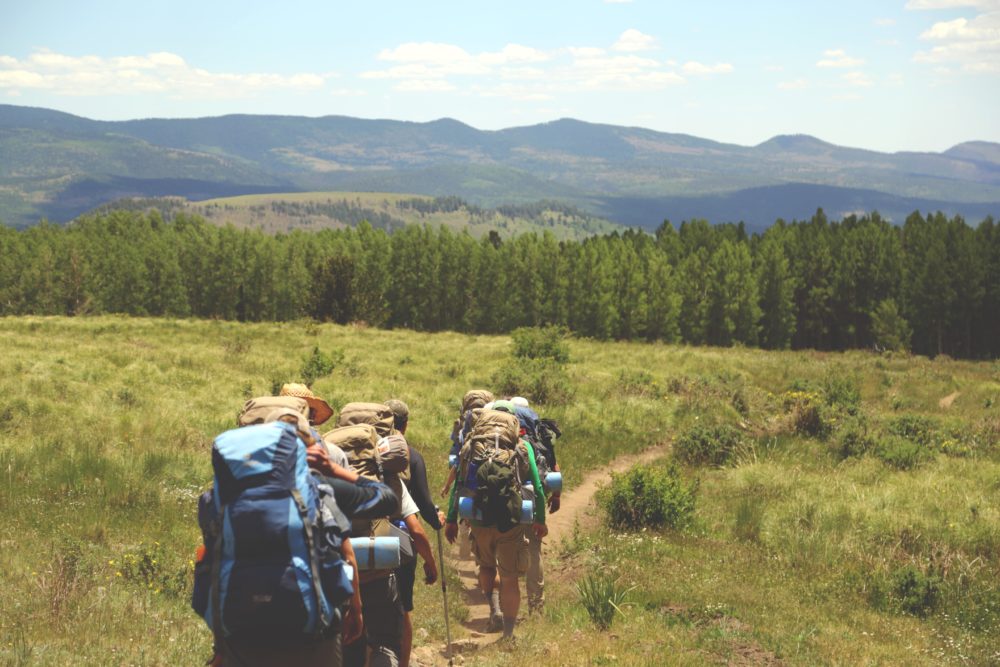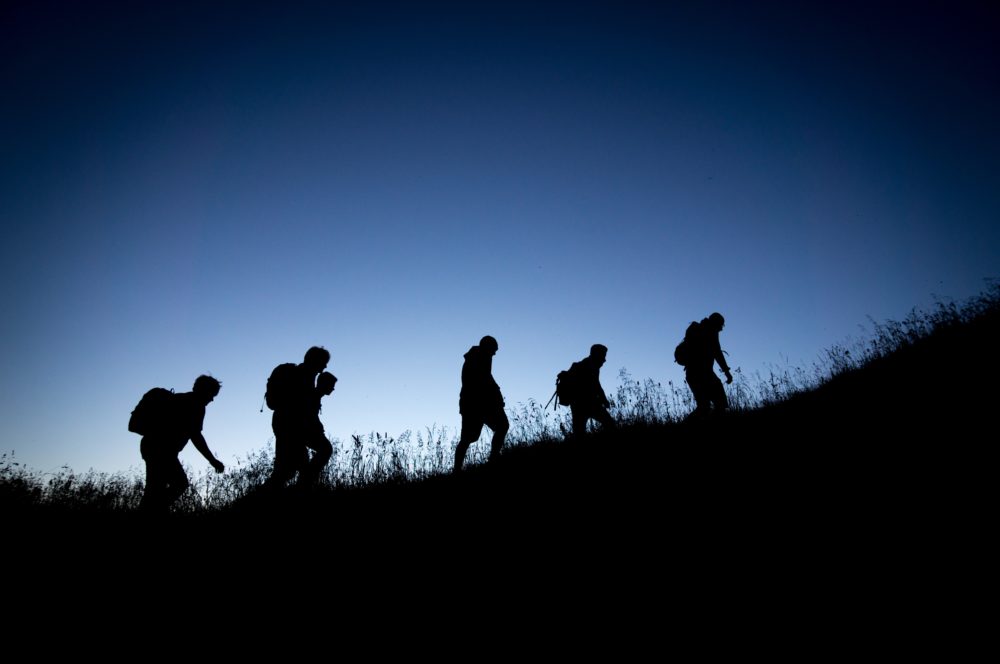Advertisement
Commentary
The Mountains Are Calling — And You Should Go

Last summer, my life took an unexpected swerve into the woods. A guidebook company hired me to write a book about trails in northern New England. (I had applied for the gig, as a lifelong hiker, but I never expected a book contract to materialize.) Tasked with reporting on 78 trails in New Hampshire, Vermont and Maine, I spent nearly every weekend from April to November getting sweaty, muddy and mosquito-bitten in the north country. But I wasn’t alone up there.
Hiking, the simple act of walking through nature, has seen something of a renaissance in recent years. More people than ever are visiting public lands. Mountaintop selfies are becoming the new “fish pic” on Bumble and Tinder. And medical professionals are prescribing outdoor recreation as a form of medicine for physiological illnesses such as depression, anxiety and compromised immunity. In the future, your health insurance policy might actually cover the cost of a trip to the great outdoors.
It’s no coincidence that this hiking comeback is happening at a moment when social media platforms like Instagram are changing the way we travel. It’s also worth noting that the generation behind the social media boom includes many young people like me who were weaned on hiking literature like Cheryl Strayed’s "Wild" and Bill Bryson’s "A Walk In The Woods."

If you spend any time in the woods, you’ll witness this hiking renaissance. It will manifest in the form of busier trails, fuller parking lots, and — ideally — friendly conversations with fellow hikers. That’s one of the most underrated benefits of going hiking: the palpable community in the back country. It might be tempting to imagine the great outdoors as a place where rugged individualism thrives. But in fact, the wild spaces where many of us go hiking are the epitome of human cooperation.
Consider the trails themselves. Those boulder staircases and groomed pathways are maintained by legions of volunteers who march into the woods each year packing backhoes, pick mattocks and other heavy tools used to repair trails — especially the ones that are routinely jammed with summer hikers. The next time you’re wheezing your way up the south side of Mount Monadnock, you may encounter trail volunteers hauling rocks and hurling shovelfuls of pebbly soil into the nearby brush. It’s brutal, dirty, back-straining work. I know this because I’ve been on one of those crews. (And if you’re inspired by their labor, you can join a trail crew yourself.)
Then there are the rescuers. Hiking is an exercise in reckoning with your vulnerability, and if things go wrong — if you lose your footing on a slippery rock, or if the summer humidity wrecks your built-in cooling system — you might find yourself in grave danger, needing evacuation from the backcountry.
In New England, search and rescue operations are usually led by state fish and game employees. But volunteers often lend a hand, too. Hikers routinely serve as first responders to the injured by providing care and alerting authorities. When patients are carried out of the forest on litters (those handheld sleds that function as a stretcher), the 10-15 person crew that performs this arduous but essential task usually includes able-bodied bystanders who just happened to be available when the carry-out begins.
... the wild spaces where many of us go hiking are the epitome of human cooperation.
But the most subtle community of hiking exists in the interactions between hikers themselves. It’s the generosity of stopping and letting a group of hikers pass you — when you’re cruising downhill and they’re schlepping their way up the mountain. It’s the conviviality of acknowledging another hiker when you pass each other, whether you feel like offering an affable “hello,” or the “nod of approval” that Robert Redford perfected in "Jeremiah Johnson." These little gestures might seem insignificant at a glance, but they're crucial to creating an outdoor atmosphere in which hikers of all walks and persuasions not only feel welcome and supported, but happy, too.
In American life, we tend to think of community as a lifeline for whenever bad things happen. And to be sure, community is a backbone that most of us would want in the event of some cataclysmic event like a house fire, the death of a loved one, or — in this case — twisting an ankle on the slopes of Old Speck or the swamps of Zealand Valley. But there’s a joy in being part of a community too. That joy is often overlooked — especially in cities where the ever-rising cost of living makes it so tough to build and sustain community — and this may be the most salient reason why you should go hiking this summer.
There’s a hidden world out there in the backcountry, and it’s full of people looking for that sense of belonging that can be so evasive in modern life itself. It’s still out there. And you can find it just a few paces beyond any trailhead sign.
